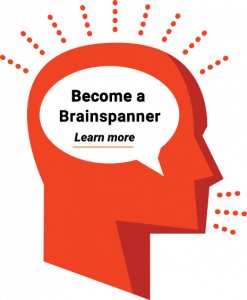Five Ways Physical Activity Can Positively Affect Your Brain

Article at a glance
- Many benefits of exercise are already well known, yet only one out of every five adults in the U.S. achieve the recommended amount.
- With emerging research on brain function and neuroplasticity, exercise is proving to be a powerful tool for enhancement of cognitive function and prevention of cognitive decay long term.
- Exercise can upregulate neuroplasticity through increasing neurotrophic signaling, upregulating neurogenesis, reducing inflammation, mitigating the stress response, and increasing antioxidant activity.
- Exercise can do more than slimming your waistline. It can benefit your brain.
You may already know that exercise is good for you, but you might not know exactly how good. We’ve all heard over and over again how exercise can increase cardiovascular health, stimulate feel-good hormones, and lower weight. Yet these benefits don’t seem convincing enough as only 1 out of every 5 U.S. adults are meeting the physical activity recommendations. Would these statistics change if more people knew the truth?
Numerous studies have reported a strong relationship between higher levels of physical activity and improved brain structure and function spanning across all age groups. Some of these findings include improved learning and memory, reduced risk of cognitive decline in adults, improved attention and academic performance in youth, attenuation of Alzheimer-related neuropathology, improved mood in persons with mood disorders, and preservation of brain tissue with age. Altogether, exercise appears to both enhance cognitive function and prevent cognitive decline.
So how can exercise provide so many benefits to the brain? Evidence shows that physical activity is one lifestyle modulator that can increase neural plasticity of our minds. The ability of neurons in the brain to change and reorganize continuously to meet dynamic demands has been determined to be achievable and essential for brains of all ages.
Here are five ways in which physical activity has proven to support your brain health and induce neuroplasticity.
- Neurotrophic signaling: Neurotrophins are a protein family that regulates neuron development, survival, and death. BDNF is one of the most widely distributed neurotrophins in the brain and it plays a critical role in the maintenance, growth, and plasticity of neurons. Aerobic activity enhances neuroplasticity by increasing BDNF release and function, which supports overall neuron growth.
- Neurogenesis: While the majority of the neurons in the brain are formed in the womb, the brain maintains the ability to generate new neurons throughout life. Physical activity increases new neuron generation by stimulating the proliferation of neural precursor cells allowing for new cells to be born.
- Inflammation: Physical activity upregulates anti-inflammatory processes and neuroprotective effects by reducing plasma inflammatory markers and increasing anti-inflammatory markers. Reduced brain inflammation promotes healthy neuron growth and maintenance.
- Stress response: The hypothalamic-pituitary-adrenal axis (HPA) is a neuroendocrine circuit that coordinates our responses to acute and chronic stress. Persistent activation of the HPA as a result of chronic stress, or natural increases of cortisol levels that come with age, can damage key areas of our brain. Long term physical activity can mitigate an overactive stress response, ultimately preventing the negative effects stress can have on the brain.
- Antioxidant protection: Oxidative stress is an imbalance between antioxidants and reactive oxygen species. Reactive oxygen species can damage proteins, DNA, and lipids in the brain leading to dysfunction. Physical activity increases antioxidant gene expression and antioxidant activity in the brain better protecting the brain from oxidative damage.
It turns out aerobic exercise can do more than weight management, it can also increase the health of your brain.
What have you done for your brain today?
![]()
 Discl
Discl![]() aimer: The views and opinions expressed in this article are those of the Author(s) and do not necessarily reflect the views, policy or position of Trident Brands Incorporated or affiliated entities. It is important to understand that while a dietary supplement may have been shown through clinical study to be beneficial for certain health conditions, they are not intended to treat, diagnose, cure or alleviate the effects of any disease.
aimer: The views and opinions expressed in this article are those of the Author(s) and do not necessarily reflect the views, policy or position of Trident Brands Incorporated or affiliated entities. It is important to understand that while a dietary supplement may have been shown through clinical study to be beneficial for certain health conditions, they are not intended to treat, diagnose, cure or alleviate the effects of any disease.
Most importantly, the content herein is not intended to be a substitute for professional medical advice, diagnosis, or treatment. Always seek the advice of your physician or other qualified health practitioner with any questions you may have regarding a medical condition.
*These statements have not been evaluated by the Food and Drug Administration. This product is not intended to diagnose, treat, cure, or prevent any disease

